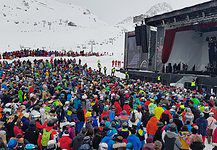Travel to Israel
Israel is a small country in the Middle East that has a long strip of coastline skirting the eastern edge of the Mediterranean and also having a small strip of land fronting the Red Sea.
Israel has borders with places like Egypt, Jordan, Syria and Lebanon. The disputed Gaza Strip is to the southwest and it shares borders to the Jordan River and Dead Sea with the West Bank and Jordan.
Three major monotheistic religions of the world, Christianity, Islam and Judaism – all lay claim to Israel being one of the holiest of holy sights for them. Quite unsurprisingly, a journey to Israel is a holy pilgrimage to many people around the world.
About 80% of the population identify themselves as Jewish. The remaining population are a mix of Arab, Palestinian, Bedouin, Baha’i, Muslim and Christian.
Israel is one of the most economically developed and westernized countries in the Middle East. Tel Aviv, is a cosmopolitan city situated on the Mediterranean Coast. Famous for its vibrant nightlife, a stopover in Tel Aviv, before moving on to visit other Israeli locations, is a good idea.
Jerusalem is the spiritual capital of the Jewish people, although Christians and Muslims also deem the city to be a very holy place. A trip to Israel would be incomplete without taking in the wonders of the Dead Sea. Being able to fully float in its hypersaline waters, is a feat in itself!
We hope that this carefully prepared travel guide will ease your travel planning and encourage you to take a future trip to Israel.


















